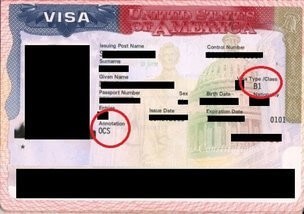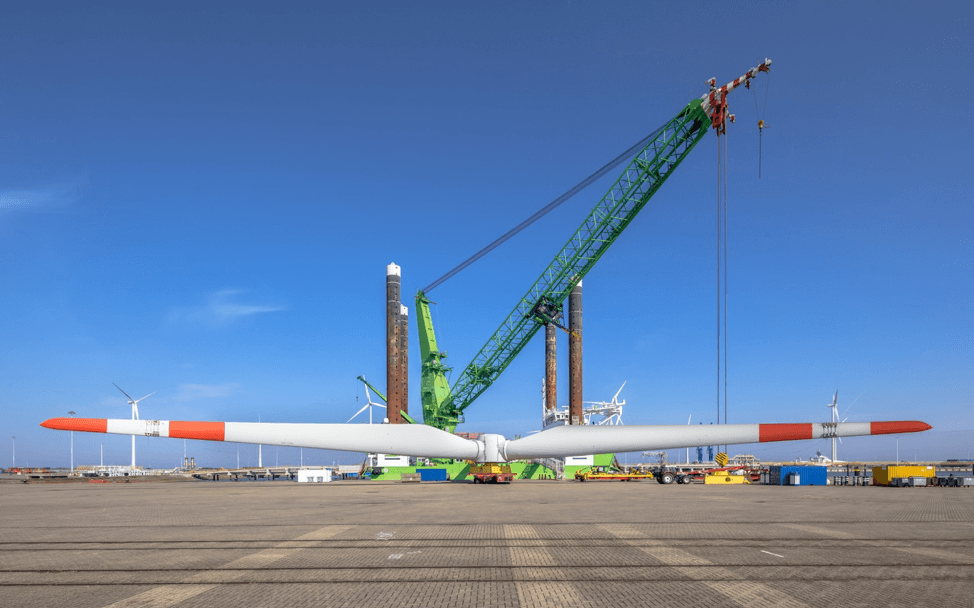- (866) 594-6886
- operations@gulfmarinecontractors.com
- 27347 W. Hardy Rd, Suite 315, Spring, TX 77373
News & Updates
US Offshore Wind Not Considered “OCS Activity” for Visa Purposes – What Does This Mean for OCSLA and the Jones Act?
The US State Department has recently updated policy guidance in the Foreign Affairs Manual (FAM), clarifying that offshore wind workers will be issues B visas for transit only and stating that the United States Coast Guard (USCG) does not consider offshore wind to be an Outer Continental Shelf (OCS) activity.
What you need to know about B-1 Visas
The B-1/OCS visas, which are widely used by foreign oil and gas workers in the Gulf of Mexico, allow entry into the United States for work on foreign vessels on the OCS for a temporary amount of time. With this policy advisement – visas for wind workers will now be notated "B-1 for Transit or Travel to the OCS for wind activities; not OCS activity"
Prior to this policy change, offshore wind workers were unable to obtain B1/OCS Visas, because the US Coast Guard did not consider offshore wind as an "OCS Activity". This new policy update will help foreign wind workers gain temporary access to the Outer Continental Shelf for work, despite wind not being considered an OCS Activity.
What is an OCS Activity?
The US Coast Gaurd regulations defines an "OCS activity" as "any offshore activity associated with the exploration for, or development or production of, the minerals of the Outer Continental Shelf". Generally speaking, an OCS activity refers only to oil and gas activity, excluding wind farm activities.
Some examples of OCS activities would include:
- Seismic Acquisition
- Subsea / Geotechnical Services related to Oil and Gas Exploration
- Drilling
- Subsea / Offshore Construction / Installation
- Production Support
- Inspection Maintenance, and Repair
- Decommissioning
Wind and OCSLA
Under the Outer Continental Shelf Lands Act (OCSLA), US law extends to the subsoil and seabed of the Outer Continental Shelf, including "all artificial islands, and all installations and other devices permanently or temporarily attached to the seabed, which may be erected thereon for the purpose of exploring for, developing, or producing resources therefrom, or any…other device (other than a ship or vessel) for the purpose of transporting. Such resources" (OCSLA). Once such a structure is erected in the Outer Continental Shelf, it becomes a "point" covered by the coastwide trade laws (i.e. the Jones Act).
When Congress enacted OCSLA, one of the law's main purposes was to govern activities aimed at extracting oil, gas and other resources from the seabed and offshore subsoil. Since wind farms extract resources from the wind, as opposed to the seabed or subsoil, it has been previously unclear whether OCSLA extends US law, including the Jones Act, to wind farm projects on the Outer Continental Shelf.
What Now?
With the State Department and US Coast Guard now taking the stance that offshore wind is not an OCS activity, we are standing by anxiously, waiting to see how US Customs and Border Protection rules on the applicability of OCSLA regulations to offshore wind projects.
[Update] Customs and Border Protection has just released another round of proposed modifications to their rulings surrounding the Jones Act and its application to Outer Continental Shelf (OCS) activity and the Offshore Industry as a whole. For a full overview and analysis of these modifications check out our most recent blog post.
If the US Customs and Border Protection follows suit with the US Coast Guard and the US State Department, we could see East Coast Wind developments open up to unrestricted use of foreign-flagged installation/support vessels. While sourcing vessels globally will aid in reducing installation costs of Offshore Wind Turbines, changes to the application of the Jones Act will inevitably have knock-on effects within the US M Industry.
For an exclusive explanation of the most recent proposed modifications of the Jones Act, come join our Industry Outreach event with speaker and JADE Officer Mike Hebert on November 20th.
Click here to register and for more information on the event






